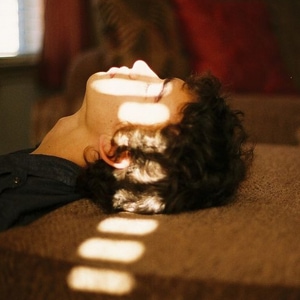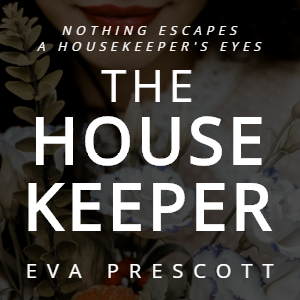Maisie Watson has only been only forty-four “special” errands, but everytime, she is more scared and shaken than the last. The possibility of getting caught loom over her, feeding up her fear and guilt, its shadow envelope her whole.
The first time Doctor Vu sent Maisie Watson on an errand for a woman’s heart, he sat her down at the kitchen table and, with gloved hands, pointed at a diagram on a good-quality, hard-printed paper. She remembered the edge was crisp, and there was a blotch of ink at the corner, and it smelt like the curry they had the day before. He had typed up the instructions, holding her gaze, he spoke in the serious tone that he had used when mocking the Communist government. Then, once he had gone over the plan three times, he handed her two knives, a handbag, a pair of latex gloves, a container and two syringes, one loaded with a brownish liquid, while other was clear. One is to numb the victim into unconsciousness. The other is for her, if the police caught her.
“I pray you’ll never have to touch it for the spirits will be with you. But. Just in case.” He had said, seeing her off.
Maisie Watson ducks her head, tugging her coat’s floppy collar. The pedestrian light blinks, and she quickly crosses, avoiding the gathering puddles. Raindrops fall rhythmically over her shoulder patches, her close-cropped, coiled hair, snaking down her scalp, disappearing under her shirt.
Every step she takes, her shoes produce a belching noise as water slowly seeps through the ripped soles and soak her socks.
The Chinese Town Market is four blocks away from Doctor Vu’s house. The common simile is that it’s a replica of Shanghai at this far, remote Western end. The Market is at the intersect of Eton Lane and Other Street, spawning over a ground eight-digit-something feet square.
Maisie Watson hurdles along the sidewalks lined with bright lipstick-red lattice fences, flattens herself against the wall as she picks her way through the parking lot, smiling timidly whenever a driver brakes and signals for her to go-ahead. She hurries into the central supermarket.
As soon as she steps inside, a toppling mount of vegetation racks wheels toward her. A worker yells at Maisie Watson to jump out of the way in the Chinese easily-recognized fragmented dialect, as he pushes the cart to aisle 10.
She finds a basket and walks slowly down the aisles, breathes in the acrid scent of tofu and fish sauces and chilli.
There is a invisible spice drapes over place, thick in the lungs, almost like a solid thing that she can moul under her finger, the type of air that irritates the nose and tears up the eye, much like the dim light above. The floor is dirty with sticky spots of meat and tapes and god-knows-what-else. Her boots squeak as she stops to pick up some can goods.
Maisie Watson used to love Chinese Market very much, and she suspected the people of West Bass secretly do, too. The market is ten-time more colossal and colourful than any other buildings in West Bass. Even through hellish snow hail or pouring rain, the red and green and golden edges pop visible from afar, proud and stronghold, unlike the standard gray, weathered blocks of other housing compartments that get buried under sheets of rain. It represents a beacon of hope for them, amongst this monotone life.
She has skimmed her fingertips over the stone walls at the back parking lot, walls covered in layers of graffiti masterpieces, like memories, like history, each new one obscure the underneath and at one point you cannot tell when the new one begins and the old one ends. She has mulled over of Chinese characters carve over the columns, mulling over the names and dates and the sacred secrets those words hold.
Doctor Vu hates Chinese Town. “Hate it with all my guts and blood,” he would say, “too loud, too noisy, too snoopy and smells like sewage.” He would wrinkle his nose, then adding as an afterthought, “The only thing that’s much appreciated is their ignorance and stupidity,” He said. That’s a few weeks before her first errand. And she thinks her love of Chinese Market ended on the same day, too, when the meaning of Doctor Vu’s words sunk into her brain while she placing the lid over the container, preserving the still warm, beating heart.
Maisie Watson puts a coriander-seeds package in her basket, feeling the plastic strain under the weight, and lines up for the Express Check-out. The line isn’t long, there are only three more people before her.
Behind her, voices squealing. She will herself not to peek over her shoulders, nor to let her eyes stray away from the person in front’s nape. She will herself not to glance at the kids jumping up and down, oblivious, not to turn while mothers and fathers grimacing embarrassedly as they shush their children, not to grab one of them and tell them to call the police to arrest her.
Will one of these young ‘uns be the unfortunate one? She closes her eyes. Already her knees buckle at the thought of ripping a child’s eyeball out of its socket. These wonderful, wonderful little miracles, with their raven, flowing hair and deep, brown, translucent eyes. Their mouth, tiny and plump pink like petals, how twist will their lips as the scream screeches out?
She cannot imagine and will not imagine.
She wishes Doctor Vu would have give her detailed instructions. After the first errand, Doctor Vu’s instruction list became shorter and shorter, until one day, he only handed her a single piece of paper with wanted items.
“I trust that you’re smart enough to figure it out,” He had said, his black eyes bore two holes into her chest.
She cannot tell which is the bigger emotion that rolled through her, horror or proud.
The today errand list burns inside her coat pocket, crumbled from multiple folds and unfolds, as a reminder of her duty. Her eyes dart to her hands, not meeting the cashier’s gaze, terrified that the middle-aged woman might be able to tell that she up to a kill.
She keeps on dropping and catching the cans as she passes them to the cashier, mumbling apologizes. Behind her, people tsk their tongue sharply and stomp their feet.
“I’m sorry,” Maisie Watson says.
After the third crash that left a dent on the metal slide, the cashier forces down a groan and swats Maisie Watson away and does the job herself. Maisie Watson sidesteps, head hung shamefully, tugs her long sleeves over her knuckles hopes her trembling fingers aren’t evident.
“Sixty-eight dollars and twenty-five cents.” The cashier says, punching the keyboard, then promptly turns and shoves all the cans inside a plastic bag. “How are you paying?”
“Cash.” Maisie Watson fumbles from her handbag.
The woman nods curtly.
The printer spits out a long receipt.
“May I have an extra bag?”
The cashier breathes loudly through her nose and throws Maisie Watson some more plastic bags.
Maisie Watson bows.
“Hurry up.” The cashier snaps.
“I’m sorry.” Maisie Watson swallows, her palms become even more sweaty.
With a last disgusted glare, the woman turns and starts on another customer.
“Sorry, what time is it?” Maisie Watson asks, dread of the answer.
The cashier grumbles before spits out the answer. “Two-thirty.”
Maisie Watson ties a good timber hitch knot and quietly shuffles out of the market. She’s careful not to bump in anybody. Her boots squawk, as if announcing her intention. She walks slow, deliberate, waiting for something to happen that can deter her from doing what she’s about to do. Her legs are unsteady, threatening to collapse at any point.
She’s scared. Scared because she’s too slow, scared because she’s too careless, scared because it seems like everybody’s watching her, seeing through her act, scared because she’s too scared to think straight, scared because she knows this will probably her last and final crime.
One of the kid bumps into her and quick to give her a toothy and innocent grin. She smiles in return. His parent rushes over and pulls him back, scolding him while apologizing for her son’s bad manner, and it takes her all her strength to not break down then and there.
Maisie Watson watches the little boy and his family go off before slouches toward the hidden entry that leads to the back parking lot, tears pricking at her eyes.
The grocery grows heavy in her hands, and the knives, the syringes and glass container she carries in her handbag are like shackles, bound her to yet another life she’s about to take.
She thinks she knows why she cannot touch the tablet. The souls from above know her hands are stained with crime, as unclean as the colour of her skin. And after today, perhaps the spirits will go as far as driving her out of the house, not just away from the altar.












Comments (0)
See all